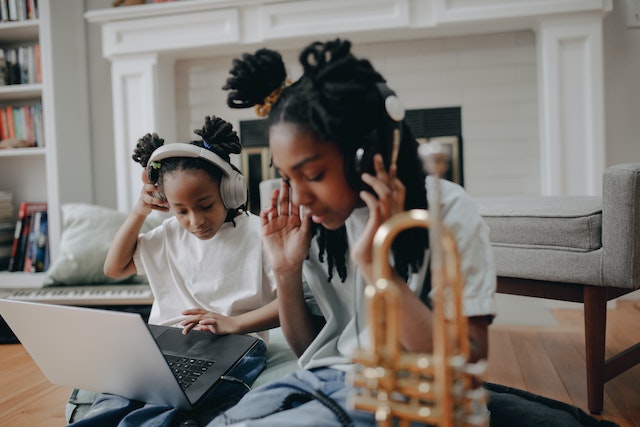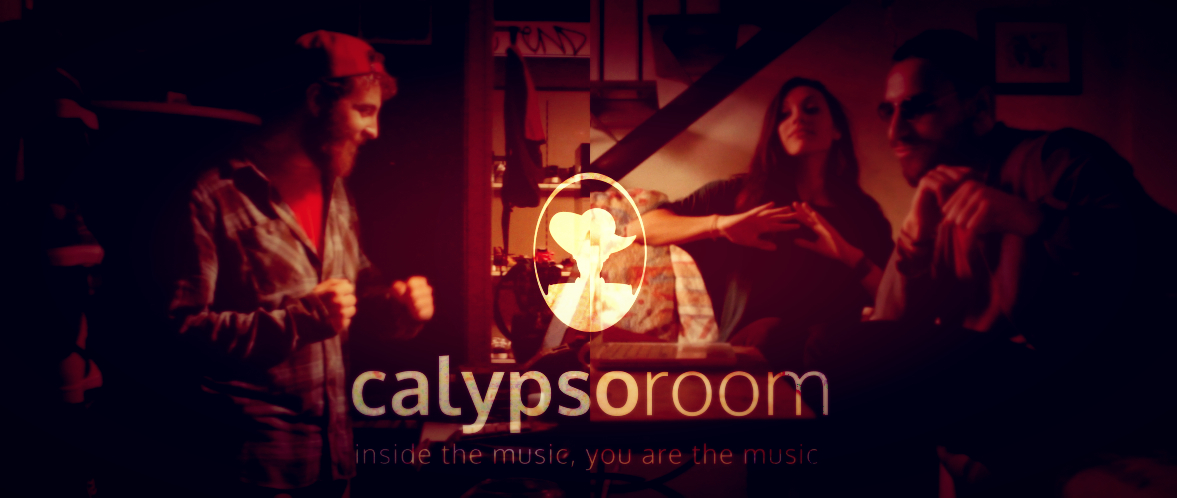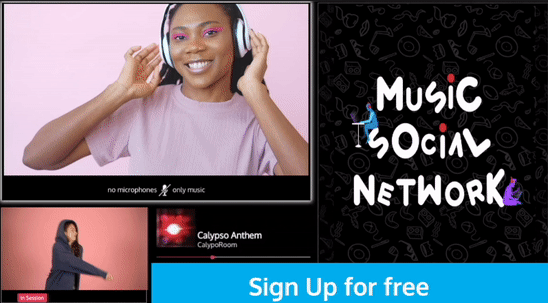Music social networks and their impact on music listening habits

Table of content
Music social networks and their impact on music listening habits - Introduction
Social networks have become an integral part of our lives, connecting us with friends, family, and even strangers from around the world.
These online platforms have revolutionized the way we communicate, share information, and discover new interests.
Music social networks have emerged as vibrant communities where music lovers come together to explore, share, and engage with their favorite tunes.
In this article, we delve into the fascinating realm of music social networks, examining how they have transformed our music listening habits and opening up exciting possibilities for discovering new artists, genres, and experiences.
As an authority in the field of music and technology, we understand the transformative power of music social networks.
These platforms have changed the way we consume, interact with, and find music, giving us unparalleled access to a vast universe of songs, artists, and genres.
Whether you're a passionate music enthusiast or an aspiring artist, embracing music social networks can enrich your musical journey and open doors to incredible experiences.
So, how do music social networks shape our music listening habits?
Let's dive deeper into this captivating realm and explore the various ways these platforms influence our musical preferences, discovery, and connections.

KEY TAKEAWAYS
Music social networks have significantly impacted how we discover, interact with, and consume music, opening up a universe of diverse artists and genres.
Platforms like SoundCloud, Spotify, and Last.fm provide personalized recommendations, promoting music discovery and exploration beyond mainstream artists.
Social interaction and music sharing on these platforms have enhanced communal experiences, with sharing and validation influencing our music preferences.
Emerging platforms like CalypsoRoom offer shared, real-time music listening experiences, enhancing social connections and enjoyment.
Future trends include the incorporation of VR and AR for immersive experiences, with an emphasis on building artist-fan communities.
However, challenges lie in maintaining privacy and data security, and ensuring algorithmic recommendations do not narrow our exposure to diverse music and obscure lesser-known artists.
The evolution of music social networks
Historical background on the emergence of music social networks
To truly understand the impact of music social networks on our music listening habits, it's important to explore their historical roots.
These platforms evolved from early online communities and forums dedicated to discussing music, and gradually transformed into dynamic social networks centered around the discovery and sharing of music.
As technology advanced and internet access became more widespread, music social networks gained traction, fostering a global community of music lovers.

Examples of popular music social networks
Today, the music landscape is teeming with a multitude of music social networks, each offering its unique blend of features and functionalities.
SoundCloud, known as the "YouTube for music," allows independent artists to share their music directly with a vast audience, fostering a vibrant ecosystem for music discovery and artist promotion.
Spotify, on the other hand, has gained immense popularity as a streaming platform, providing users with an extensive catalog of music and personalized recommendations.
Lastly, Last.fm stands out for its focus on music recommendations based on users' listening habits, creating a personalized music discovery experience.

Overview of features and functionalities offered by music social networks
Music social networks offer a wide range of features and functionalities that enhance our music listening experiences.
These platforms provide opportunities for users to create and curate their own playlists, follow their favorite artists, and engage with a community of music enthusiasts.
Moreover, music social networks foster connections between artists and fans, enabling independent musicians to reach a broader audience and build a supportive fanbase.
Influencer culture has also made a significant impact on music social networks.
Influencers, with their large online followings and influential presence, have become key players in shaping music trends and promoting artists.
This symbiotic relationship between influencers and music social networks has opened up new avenues for artists to gain exposure and reach wider audiences.

The impact of music social networks on your music listening habits
Increased music discovery and exploration
When it comes to discovering new music and exploring different genres, music social networks have revolutionized the game.
Thanks to personalized recommendations and powerful discovery algorithms, these platforms serve up tailored suggestions based on your listening habits and preferences.
By analyzing your music choices, social networks help you uncover hidden gems and introduce you to artists and songs you may have never come across otherwise.
Music social networks also expose you to a wider range of artists and genres. They go beyond mainstream hits and popular artists, providing a platform for independent musicians to showcase their talents.
Through these networks, you can stumble upon emerging artists, underground bands, and unique genres that might not receive as much attention in traditional media.
32% of consumers say that they find new music on social media, with the 18-24 and 25-34 age groups being especially likely to do so.
This exposure to diverse musical landscapes allows you to broaden your musical horizons and discover new favorites that resonate with your individual taste.

Enhanced social interaction and music sharing
One of the remarkable aspects of music social networks is the ability to connect with others who share your musical interests.
These platforms provide a space for social interaction and music sharing, allowing you to create and share playlists with friends and followers.
You can curate your own collections of songs, share your favorite tracks, and even collaborate with others in compiling playlists for specific moods, occasions, or themes.
Another important aspect of social interaction on music networks is the power of social validation.
When you discover a new song or artist and share it with your network, the positive responses and validation from your friends and followers can influence your music choices.
It creates a sense of belonging and connection, reinforcing the impact of music social networks on your listening habits.

Collaborative Music Listening Experiences like CalypsoRoom
Imagine sitting in a virtual room with friends or like-minded individuals, connected by webcam, and listening to music together in real time.
That's where platforms like CalypsoRoom come into play. CalypsoRoom is a unique platform for shared music listening experiences, allowing you to connect with others through the power of music.
By leveraging webcam connections, it enhances the social aspect of music listening, enabling you to see and interact with others as you explore and enjoy music together.
The benefits of CalypsoRoom's webcam connection feature are manifold.
Visual cues, such as facial expressions and body language, add an extra layer of depth and emotional connection to the experience.
Collaborative music listening through platforms like CalypsoRoom not only enhances your music enjoyment but also strengthens social bonds and creates lasting memories.

The future of music social networks
As we delve into the intriguing possibilities that await us, let's explore the emerging trends and potential challenges of music social networks.
Our hope is that this will empower you, whether you're an artist or fan, to navigate this new landscape successfully.
Emerging trends in music social networks
As of 2023, there are an estimated 65.9 million VR users and 110.1 million AR users in the United States. Worldwide, there are an estimated 171 million VR users.
Imagine wearing a headset and instantly being transported to a live concert of your favorite band, no matter where you are in the world.
This is the potential of VR and AR technology in music social networks. These immersive experiences are set to revolutionize how we connect with music, turning passive listeners into active participants.
The future of music social networks lies in the integration of these technologies, offering unparalleled experiences for all music lovers.

Music isn't just about the tunes; it's about the connections we make. Music social networks are placing a greater emphasis on community building and fostering artist-fan interactions.
They are creating spaces for like-minded individuals to interact, share, and discover new music together.
This trend emphasizes the social aspect of music, transforming fans into communities and empowering artists in new, personal ways.
Potential challenges and ethical considerations
As we integrate more of our lives into online platforms, concerns around privacy and data security are becoming increasingly important.
Music social networks, like other digital platforms, need to prioritize protecting their user's information.
It's vital that these networks establish robust privacy policies and data security measures, ensuring that the personal data of artists and fans alike remain secure.

Algorithms play a massive role in shaping what music we discover and listen to. However, this has potential drawbacks.
For instance, they may limit the diversity of music we're exposed to, leading to a narrowing of our musical tastes.
This phenomenon, known as the 'long-tail effect,' may ultimately result in lesser-known artists struggling to gain visibility.
To ensure a diverse and inclusive musical landscape, music social networks must strike a balance between algorithmic suggestions and human discovery.
As we venture into this new era of music social networks, remember that these platforms are tools to enhance your musical journey.
Stay open to new experiences, but always prioritize your privacy and embrace the diversity of music.
The future of music is in our hands, and it's our responsibility to shape it into something vibrant, inclusive, and respectful.

Music social networks and their impact on music listening habits - Conclusion
The symphony of change is playing, and music social networks are the conductors. These platforms have undeniably transformed our music listening habits.
No longer are we merely consumers of music, but we have become active participants in our own sonic adventures.
We're not just listening to music; we're experiencing it, connecting with it, and living it in unprecedented ways.
From finding that one obscure band that makes your heart race, to engaging with a community of fans who share your passion, music social networks are creating richer, more meaningful musical experiences.
And, while we're on the topic of music discovery and vibrant communities, have you tried out CalypsoRoom?
It's a fresh take on music social networks, offering a platform where the rhythm of innovation meets the harmony of community.
It's more than just a place to find new music – it's a space to connect, to share, and to fall in love with music all over again.
Uncover the many treasures that await you in the world of music social networks in our blog homepage, and let CalypsoRoom be your compass in this exciting journey.
Our journey into the world of music is far from over, and we invite you to join us as we venture into the next verse. The future is in our hands, and together, we can make it sing.
Let the music play,
The CalypsoRoom Team
Frequently Asked Questions (FAQs)
How do music social networks impact music listening habits?
Music social networks have a significant impact on music listening habits by offering personalized recommendations based on users' preferences, and providing platforms for exploring new artists and genres, thereby broadening listeners' musical horizons.
Which music social networks are popular?
Popular music social networks include platforms like SoundCloud, Spotify, and Last.fm, each with unique features for music sharing, discovery, and community-building among music enthusiasts.
Can music social networks help discover new artists and genres?
Absolutely, music social networks can indeed help in discovering new artists and genres. By offering personalized recommendations and fostering communities centered around music, these platforms expose users to a diverse range of music far beyond mainstream hits.
How do music social networks influence music curation?
Music social networks greatly influence music curation by allowing users to create and share their own playlists. They also utilize advanced algorithms to curate personalized music recommendations based on user listening habits and preferences.
Do music social networks enhance artist-fan interactions?
Yes, music social networks significantly enhance artist-fan interactions by providing spaces for communication, allowing artists to share their work directly with fans, and fostering a sense of community around an artist's music.
Are there any challenges associated with music social networks and music listening habits?
Yes, challenges associated with music social networks include concerns about privacy and data security, as well as the risk of limiting musical diversity due to the dominance of algorithms, a phenomenon known as the 'long-tail' effect.
How does algorithmic filtering affect music recommendations on social networks?
Algorithmic filtering heavily influences music recommendations on social networks by analyzing user listening habits and preferences. However, this can potentially lead to a narrowing of musical diversity if lesser-known artists or genres are not sufficiently represented.
Are there any privacy concerns related to music social networks?
Yes, there are significant privacy concerns related to music social networks. As users integrate more of their lives into these platforms, the protection of personal information and data security becomes increasingly critical.
Can music social networks influence the music industry?
Absolutely, music social networks can and do significantly influence the music industry. They have transformed how we discover and consume music, promote artists, and interact with other music enthusiasts, effectively reshaping the music landscape.
back
Written by CalypsoRoom Editorial Team
The CalypsoRoom Editorial Team is a skilled and diverse group of writers, researchers, and industry specialists who have access to Calypso's data and information in order to give you broad knowledge about the music industry as well as helpful advice to help you manage your music and dancing career.
Updated August 2023
Company number: 681223
James's Walk 31, Dublin, Ireland
contact@calypsoroom.com
+353 (89) 435 8928




